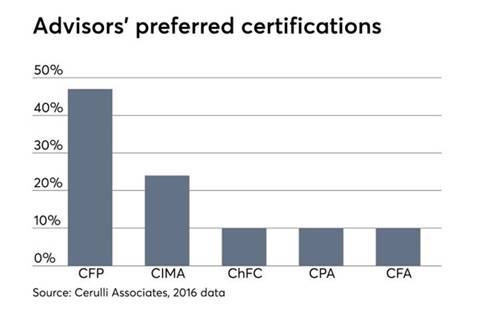Towerpoint Wealth policy on advanced professional industry designations
Like any industry, the financial world is constantly shifting due to government regulations, market changes, and a rapidly aging population. To remain on the cutting edge and to best serve clients of Towerpoint Wealth, we recognize the importance of expanding our knowledge base as financial services professionals. Clearly, one of the best ways to sharpen skills and to stay in front of the ever-changing financial landscape is pursuing, and maintaining, an advanced professional designation, as having a third-party attestation of our employees’ level of knowledge, ethics, competence, and proficiency is essential.

Understanding a professional designation cannot measure the intangibles that a good personal advisor has to have, it does directly signify a broad and deep commitment to education, a rigorous test for competence, and strict requirements for both ethics and for continuing education.
Towerpoint Wealth has a firm mandate that all licensed advisors and employees earn and maintain an advanced professional designation. We believe that an investment in advanced education in the wealth management and financial field pays for itself many times over, with a central objective of affording Towerpoint Wealth clients the opportunity to partner with a firm who prioritizes education, and stays on the cutting edge of the evolution of the financial industry.
After a person earns one of these difficult-to-earn designations, he or she has to take extensive Continuing Education (CE) each year to maintain an active license. In the opinion of most industry observers, the “big three” of wealth management / financial services advanced are the CIMA®, the CFA®, and the CFP®:
CIMA® (Certified Investment Management Analyst) :
CIMA® For adviso rs who are more focused on portfolio design, asset allocation, and selecting investment vehicles or investment managers to fill out those asset classes, many believe the CIMA® to be the gold standard. CIMA® professionals integrate a complex body of investment knowledge, ethically contributing to prudent investment decisions by providing objective advice and guidance to individual and institutional investors. The CIMA® certification program is the only ANSI-accredited advanced designation, and is designed specifically for financial professionals who want to obtain a level of competency as an advanced investment consultant.
rs who are more focused on portfolio design, asset allocation, and selecting investment vehicles or investment managers to fill out those asset classes, many believe the CIMA® to be the gold standard. CIMA® professionals integrate a complex body of investment knowledge, ethically contributing to prudent investment decisions by providing objective advice and guidance to individual and institutional investors. The CIMA® certification program is the only ANSI-accredited advanced designation, and is designed specifically for financial professionals who want to obtain a level of competency as an advanced investment consultant.
→ Value of CIMA® certification
→ CIMA® core topics
→ Investments and Wealth Institute / CIMA® partnership with Wharton School of Business

How can one tell the difference between a quality credential and a not so quality credential?
CFA® (Chartered Financial Analyst) :
The CFA Program is designed to help candidates master a broad range of advanced investment analysis and portfolio management skills. In order to earn the Chartered Financial Analyst credential, individuals must complete a rigorous study program and pass three levels of exams which test a candidates knowledge in ten topic areas ranging from Ethical and Professional Standards to Portfolio Management and Wealth Planning. A candidate must also complete four years of professional work experience where he or she is a part of the investment decision-making process prior to becoming a charterholder.
CFP® (Certified Financial Planner) :
CFP® (Certified Financial Planner) : The CFP® curriculum is designed to develop, integrate, and apply a broad base of financial planning knowledge in the context of real life financial planning situations. By passing this exam, a CFP® professional demonstrates to the public they have attained a competency level necessary to practice independently as a financial planner.




